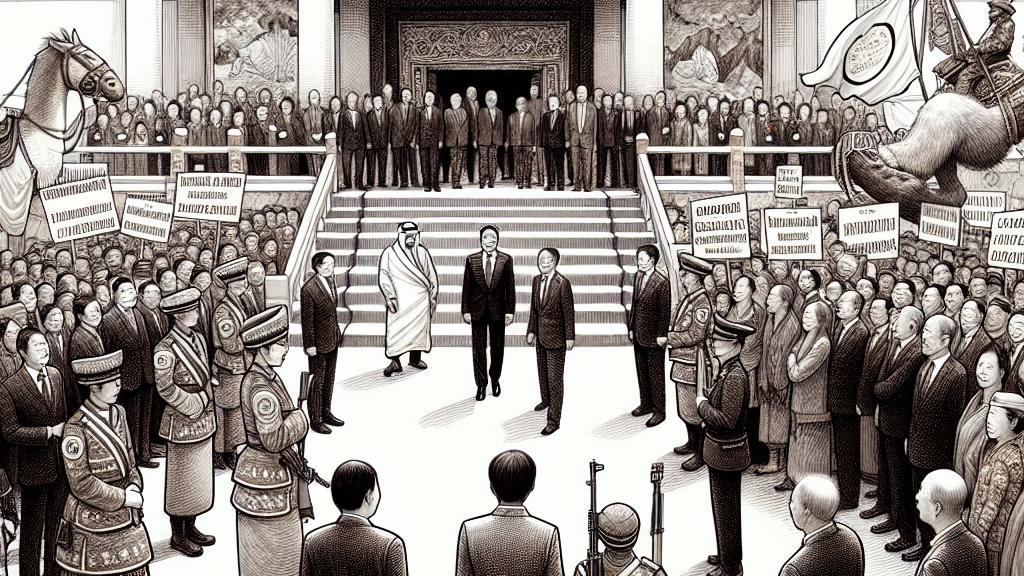Putin's Grand Mongolian Welcome: A Judicial Fumble?
Overview
- Russian President Vladimir Putin visits Mongolia amid an ICC arrest warrant.
- Ukraine denounces Mongolia's failure to detain him, stressing impacts on justice.
- Mongolia seeks to strengthen economic ties with Russia despite geopolitical risks.

The Context of the Visit
On September 3, 2024, Russian President Vladimir Putin arrived in Mongolia for a state visit that captures significant international attention. This marks his first trip to an International Criminal Court (ICC) member state since an arrest warrant was issued against him in connection with war crimes attributed to the ongoing conflict in Ukraine. Upon his arrival in Ulaanbaatar, the warm reception led by Mongolian President Ukhnaagiin Khurelsukh featured ceremonial honors and enthusiastic public displays, highlighting a stark contrast to the serious legal implications of the charges against Putin. The event raises critical questions about Mongolia's commitment to international law and its capacity to navigate the prevailing geopolitical landscape.
Ukrainian Concerns and Global Repercussions
In response to Putin's visit, Ukraine vehemently criticized Mongolia for its decision not to detain him, viewing it as an abdication of the country's responsibilities under international law. Ukrainian Foreign Ministry spokesperson Heorhiy Tykhyi emphasized that by allowing Putin to evade arrest, Mongolia is complicity in undermining the ICC's credibility. The international community watches closely, as such actions could herald broader implications for how member states uphold their legal commitments, particularly regarding war crimes and human rights violations. While the Kremlin has dismissed these criticisms as politically motivated, stressing the robustness of their bilateral relationship with Mongolia, the Ukrainian government asserts it will continue to rally its allies to address these actions and their consequences.
Mongolia's Strategic Dilemma
Mongolia finds itself in a challenging position, sandwiched between two major powers: Russia and China. The nation relies heavily on Russia for energy and infrastructure, while also fostering important economic investments with China. The anticipated Power of Siberia 2 pipeline, designed to transport natural gas to China, exemplifies Mongolia's critical role in facilitating energy logistics in the region. Despite these economic advancements, the visit from Putin serves as a reminder of the complex balance that Mongolia must maintain between its national interests and international legal obligations. Policymakers face a pressing need to navigate this intricate landscape, ensuring that while they pursue economic ties, they also reaffirm their commitment to global standards of justice, accountability, and human rights, a balance that is increasingly demanded by a politically aware and engaged Mongolian populace.

Loading...